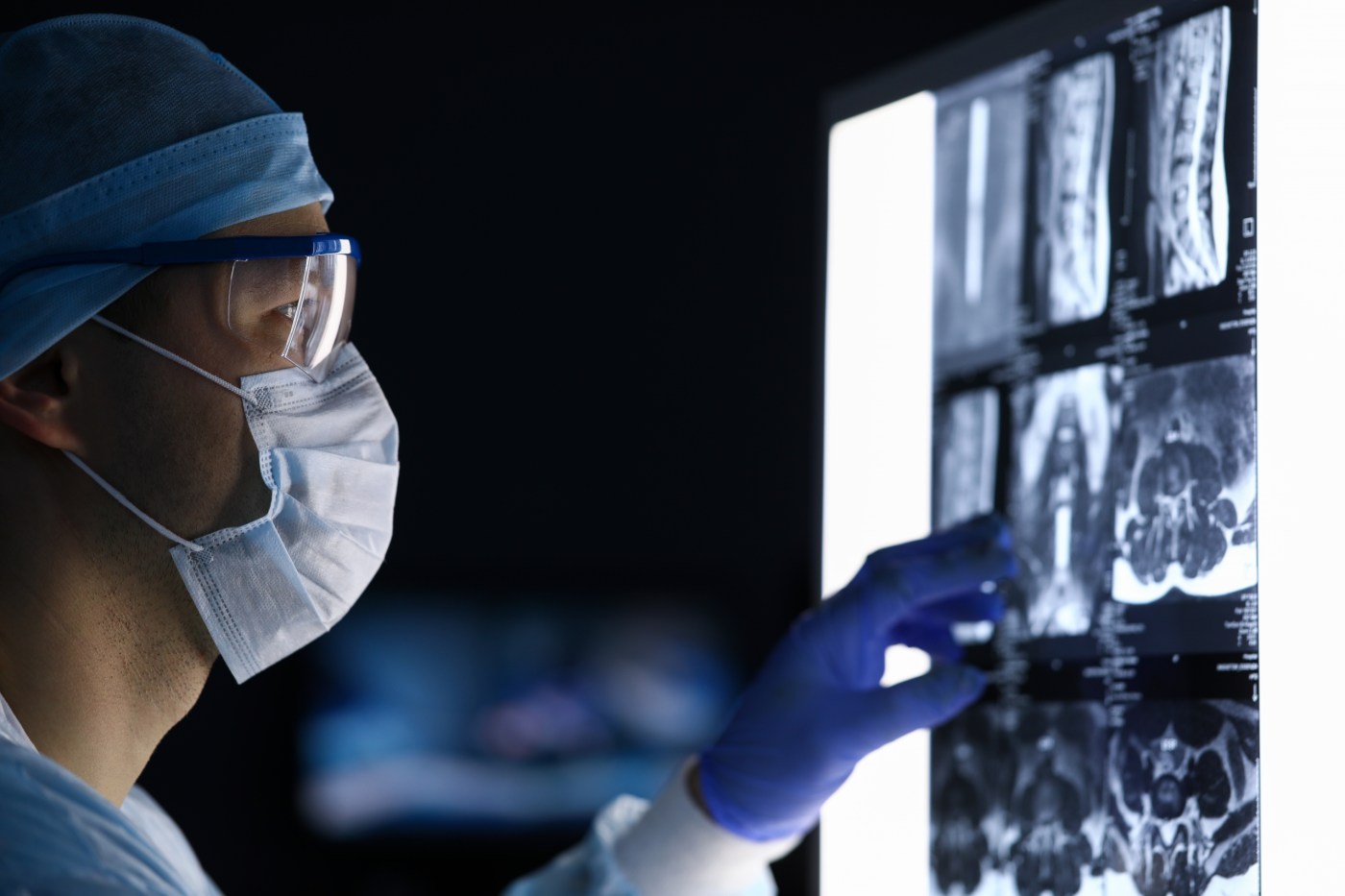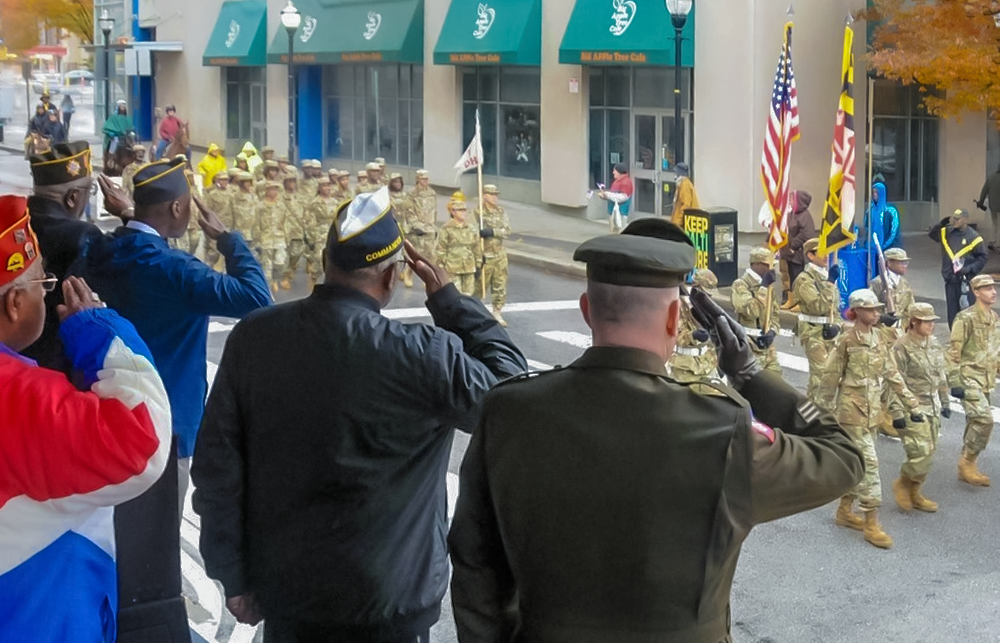Every year, VA diagnoses and treats about 43,000 Veterans with new cases of cancer; VA currently treats 400,000 Veterans with cancer. Here is VA’s progress on treating cancer.
Treatment and screening
VA launched the National Precision Oncology Program that allows us to target treatments to the right patients at the right time through a molecular understanding of the patient’s tumor. In 2016, we started with a handful of sites that were able to collect and test samples. Since then, we expanded to 129 sites, providing 24,000 molecular tests to 18,000 Veterans.
The growth of the program was especially important with access for Veterans because, in the general population, these therapies are not usually reimbursed, are expensive, and are not widely available.
VA also started the National TeleOncology Service to provide all Veterans with sub-specialized cancer care, especially those in remote areas where there is not an oncologist. This expansion and ability to provide cancer care virtually has also allowed us to treat Veterans equitably.
In our partnership with the National Cancer Institute and the program NAVIGATE, (National Cancer Institute and VA Interagency Group to Accelerate Trials Enrollment) we were able to increase Veteran access to novel National Cancer Institute cutting-edge clinical trials at 12 sites within VA. There has been an emphasis on enrollment of underrepresented Veterans in clinical trials. The benefit to Veterans is the ability to access more therapeutic options to potentially extend and improve the quality of their lives.
Testing
In the expansion on NPOP we were able to provide our Veterans access to germline genetic testing at more than 85 of our medical centers. This testing allows Veterans to guide their own treatment as well as inform the Veterans’ family members about their inherited genetic mutations, which may predispose family members to certain cancers. This information may be used to steer the Veterans’ family members to more timely screening, diagnosis and treatment for cancers they may be predisposed to.
Research
We partnered with DoD and NIH’s National Cancer Institute in the development of Applied Proteogenomics Organizational Learning and Outcomes (APOLLO) Program. APOLLO and Proteogenomics address the unique findings and features of service members’ and Veterans’ tumors by studying protein-based cancer biomarkers, its alterations and mutations, and applying this knowledge to the precise treatment of our Veterans and service members.
Rare cancers and unique exposures
About 16% of all cancers in VA are rare cancers, and the effect of Veterans’ unique exposures is not well understood. A few examples include gynecological cancers and B-Cell hematological malignancies.
To address this, we are establishing a new program aimed at targeting Veterans’ rare cancers and will partner with and expand upon existing DoD and other federal agency partnerships to implement this program. The VA Rare Cancer Program will combat rare cancers through a multi-pronged approach using sub-specialized oncologists, clinical pathways, advanced testing and research. The potential impact for Veterans includes rapid diagnosis, access to advanced precision treatments and clinical trials, and proficient management of disease to reduce inequities in care. Further, this effort provides research opportunities to close the knowledge gap in genetic and molecular understanding of rare cancers that can affect patient care, drug development and disparities in disproportionately affected populations.
To help us understand the contribution of the exposure to a cancer diagnosis, VA, CDC, DoD, NCI, National Institute of Environmental Health Sciences (NIEHS), EPA and HHS will develop a cohort of Veteran tumor samples from various registries to conduct sequencing of tumor samples and identify genomic signatures that may be associated with carcinogens from military and environmental exposures. This approach has been attempted in the past, but because of privacy constraints, there was a lack of progress. The collaboration would be beneficial in the interpretation of the data for cancers specific to military service members.
We will develop a centralized and accessible data compilation to better understand Veterans’ unique exposures and to ensure two-way data exchange. Currently, the VA Cancer Registry System expends substantial effort to identify and track incident cancer cases throughout VA, and we are limited in functionality to automate integration of all relevant cancer-related data. With this data made accessible in this way, VA, other agencies and institutions would have the ability to learn from more patients and reduce the cost and time of data curation.
Cancer screening efforts
As a result of the pandemic, many Veterans and civilians have deferred cancer screenings. Additionally, a quarter of all Veterans live in rural locations, making access to screening more difficult. Lung cancer is the second most common form of cancer for our Veterans, where nearly 8,000 are diagnosed with lung cancer. Lung cancer is also the deadliest form of cancer among Veterans, where 5,000 Veterans die annually. Deferred cancer screening prevents diagnosis and timely treatment. VA has been focusing on promoting cancer screening for breast, colorectal, lung, cervical and prostate cancers to encourage Veterans to address pandemic-deferred care.
As noted by the recent President’s Cancer Panel, colorectal cancer screening can effectively take place in the convenience of one’s own home with stool-based screening tests, such as the Fecal Immunochemical Tests (FIT). VA is implementing a program to deliver FIT screening to Veterans across the nation. This program will ensure Veterans have access to evidence-based screening in a timely manner, and this intervention has been shown to both reduce cancer mortality and improve health equity. National program guidance is being developed and pilot programs are underway with the goal of deployment in early 2023. It is estimated that 1.2 million Veterans are eligible for FIT screening.
We will be encouraging lung cancer screenings to the estimated 900,000 Veterans who are at risk for developing lung cancer. Lung cancer screening – using annual computed tomography (CT) scans – substantially reduces the number of people who die from lung cancer. Unfortunately, of the 1- to 2-million eligible Veterans, less than 10% currently have received even one CT scan for lung cancer screening.
In 2021, VA established the National Center for Lung Cancer Screening to address this problem. Its mission is to increase systematic and equitable access to high-quality lung cancer screening processes. The Center will leverage VA’s learning health care system to sustainably increase access to evidence-based lung cancer screening processes that are effective, equitable, safe and efficient. With the help of the Center, VA is poised for rapid growth in enabling Veterans to access lung cancer screening and subsequently dramatically reduce the number who die from lung cancer.
The Center supports and advocates for Veterans by implementing patient-centered care processes for shared decision-making, smoking cessation interventions, and connecting patients at very high risk of having lung cancer to additional levels of care. It partners with VA facilities to provide data and policy advice to central leadership regarding lung cancer screening-related issues.
Topics in this story
More Stories
VA's contact centers have moved to the cloud to boost resilience of critical Veteran-facing platforms, cut costs, and drive exceptional service to Veterans.
Nearly 400 Veterans from across the country have gathered in Snowmass Village for the 39th Annual National Disabled Veterans Winter Sports Clinic. This premier adaptive rehabilitation event, co-presented by VA and Disabled American Veterans (DAV), continues through April 5.
VA and the Veterans Day National Committee (VDNC) invites cities, towns, and non-profit groups across the country to join us in showing appreciation for Veterans by applying to hold VA-recognized regional Veterans Day observances.






Why is it VA, CAVHCS, will not pay travel to and from cancer treatments ?? CCN3 Oncology authorizes travel, valid till Oct 22. What do they do with the money ??? I could surely use it with gas around $5.00 a gallon.
and THIS is why “they” will never find a cure for cancer……money, money, money….
Looks like the VA is on a BIG spending spree to make the cowards in DC think they actually care. TAKE THE VA THUMB off our backs! Let vets go on PAID MEDICARE! Give Vets the option of going on Medicare where we can seek our own doctors, seek various treatments & meds with decision with our doctors & have the ability for an HONEST 2nd opinion.
Ask you politicians why VA Healrhcare meets all requirements for the ACA & Medicare Part D ( prescriptions ), but NOT Part B. Medicare told me VA care DOES NOT. MEET the minimum requirements for Medicare. Why is that if we supposedly are getting the “Best Care Available,” but it’s not as good as Medicare? WTF? And I would bet a very high percentage of seniors would say Medicare needs work too.
My opinion why is by making g VA care not acceptable as an alternative the GOVT & COWARDS in DC can keep their GUINEA PIG PEN full with veterans who have no choice. Also ask your reps if the VA got 370 signed consent forms for the Veterans USED BY THE VA TO KISS TRUMP’s ass by using them to test Trump’s uneducated claim about Hydroxychorloquine as a covid cure. That cost 38% of those 370 their lives. Then the Pig In Chief said the test was not a good test because they all had ” One foot in the grave anyway!” So then why were they used in the first place? But who cares when we have an endless supply of test subjects coming in every day.
What 40 or 50 years to admit Agent Orange used in Nam was a death sentence for many & now they are “GOING TO STUDY” the effects of burn pits? Been what 20 or 30 years & NOW the VA is going g to study & DENY? How many have already died & the VA needs more studying? It’s a time game to the VA & govt. How Nanyang can we let die before we have to acknowledge the effects!
Also, ask why the ” SECRET Disruptive Behavior Committee of EXPERTS” (guess we have to take the VA’s word on their expertise since they are “SECRET,” you know PUTIN like stuff) considers ALL VETERANS ARE LIARS! Get accused of anything by a VA employee. BOOM, GUILTY!” Never get to explain YOUR side. Doesn’t an accused murderer get to tell his side? Not us vets! On my Red Flag it states this PUTIN style SECRET COMM, came to their decision WITHOUT ever contacting the veteran which is standard policy throughout the VA System? So murders get to tell their story, but no US LYONG VETERANS!
Everything DC does, along with the VA keeps vets tunneled into a corrupt system with 2nd & 3rd rate doctors who either are only there to pay their loans or can’t make it in the REAL WORLD, so they hide their INABILITIES under the govt umbrella! Like the Indiana VA Ortho Surgeopn who “botched,” BOTCHED ( VA IG words now ) 147 surgeries & his punishment..
%$#@ PROBATION! Could you have found a job where you could make 147 MISTAKES (not even counting the suffering if vet he caused) and STILL have a job? Go to work at a VA and you can. Remember we have to put govt workers first & s I ew the statistics to make the public think we actually care!
WELCOME TO GOVERNMENT RUN HEALTHCARE!
I took a picture of this to prove I wrote it & it was never posted. If you see it send me a shout because I would bet the VA scrubs the truth from here! Good luck Brothers!
[Editor: This comment was retrieved from spam. Akismet, WordPress’ spam protection software, doesn’t like all caps.]
Is Basal Cell Cancers not more common among Vietnam Veterans than all other Military Veterans. I bet they are, and all cancers are higher among Vietnam Veterans than any others groups. Tell me YES they are or NO they are not, then prove it. Thank you.